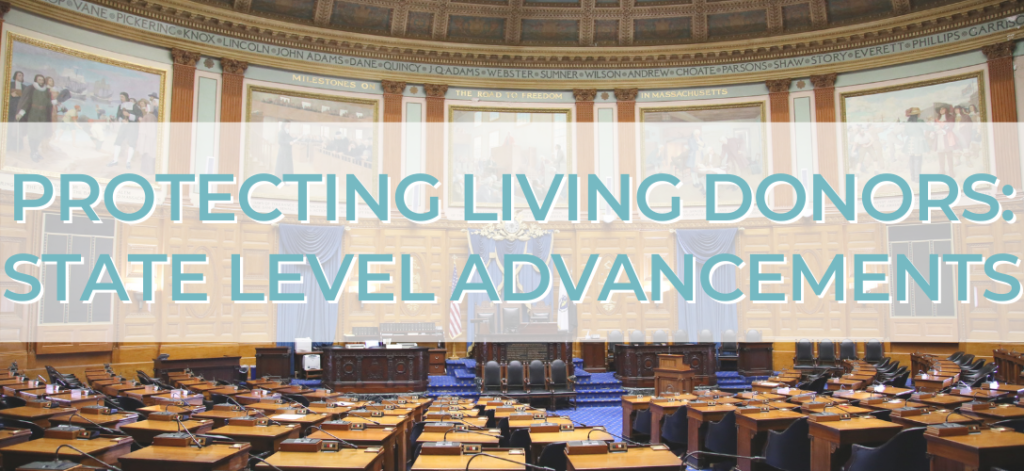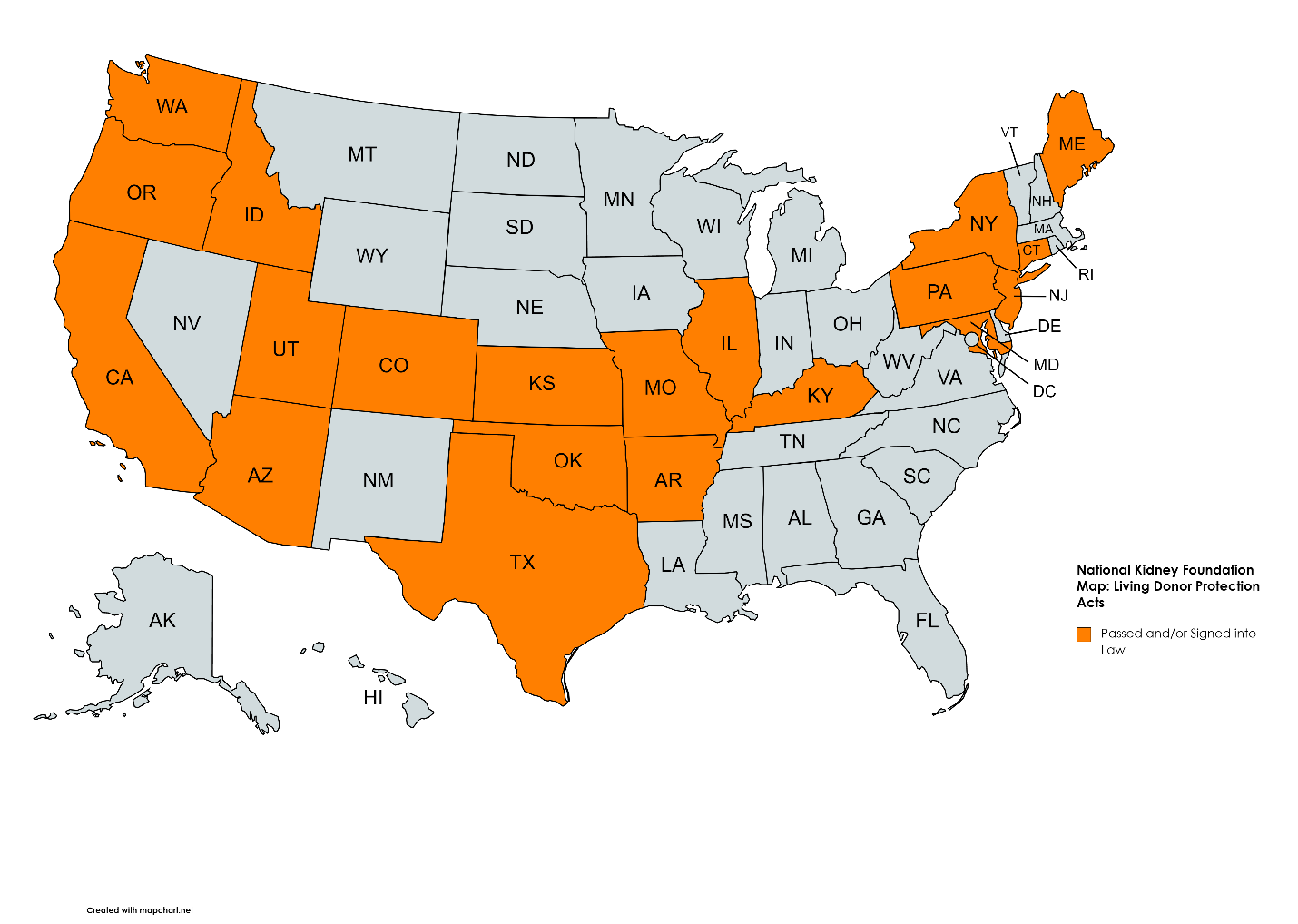
Published on June 15, 2021 | We’ve seen firsthand the power of collaboration to enact meaningful change in health care. By pulling together institutions and advocates, we can transform policy for kidney patients and living donors. During the last Congress, the PKD Foundation and members of the kidney and transplant communities united under the Honor the Gift coalition, pushing the Immuno Bill for two years. A bill that would guarantee immunosuppressive medications to kidney transplant recipients for life.
The entire community breathed a sigh of relief with the Immuno Bill’s bipartisan passage. As a result, life post-transplant could be just a little bit easier.
State Living Donor Protections
In 2021, we’ve engaged with like-minded organizations such as the National Kidney Foundation, America Kidney Fund, Northwest Kidney Council, and Dialysis Patient Citizens on a new endeavor. Together, we’ve been promoting legislation at the state level to help protect living donors.

Image: National Kidney Foundation
As a collective, we’ve made great progress in protecting living donors over just the first five months of this year. We’re proud to have supported the passage of the Living Donor Protection Act (LDPA) laws in six states: Pennsylvania, Kentucky, New Jersey, Texas, Washington, and most recently, Connecticut. This means 18 states now have protections for living donors of vital organs like kidneys. These 18 states—over one-third of the U.S.—are leading the way by protecting those who’ve given to others.
These state LDPA laws protect living organ donors from being fired solely for taking time off to recover from their surgery and prevent them from having their insurance premiums raised or be denied coverage outright solely for being a donor. In addition, many of these bills provide tax assistance or medical leave for donors. This makes it easier to give the selfless gift of life.
To track state-level policy, our partners at the American Kidney Fund have put together the 2021 State of the States Living Donor Protection Report Card. Scores are based on whether a state has anti-insurance discrimination legislation, job-protected leave from either public/private employers, tax credits for private employers who provide paid leave, tax credits or deductions for living donor expense, paid leave via Family and Medical Leave Act (FMLA) laws, and if FMLA leave has been extended beyond 60 days. This resource tracks bills passed so far in 2021 and informs users on where progress remains to be made at the state level.
Federal Living Donor Protections
Meanwhile, the PKDF along with the kidney and transplant community remains committed to passing the federal Living Donor Protection Act (S. 377/H.R. 1255). By engaging legislators in both Congress and state legislatures, living donors in states with their own LDPAs can live with these protections while the community continues advocating for the federal protections of S.377/H.R. 1255.
By working in collaboration with other organizations from around the country, the PKDF is going further and pushing for other policies. For example, establishing new CKD task forces to holistically address kidney care, creating tax incentives that cover a living donor’s expenses, expanding Medigap programs to supplement coverage for individuals on Medicare, enacting paid leave policies for organ donation, and passing assistance benefit policies for kidney patients into law.
How You Can Get Involved
We envision expanding our Advocacy Champions Network over the next year, bringing in advocates from more regions across the U.S. This growing network of dedicated community members will continue engaging their legislators by sharing their stories and our message.
To learn more about our ongoing advocacy efforts, you can find helpful info in our previous blog posts on the LDPA and being a citizen advocate for PKD issues. Lastly, you can get involved and take action by contacting your federal or state legislators in support of the Living Donor Protection Act through our Advocacy Alert.









Great news
I was honored to participate in speaking with legislators from Arizona and Utah regarding the Living Donor Protection Act. It felt so empowering to represent those of us who suffer from PKD. I’m currently on the transplant list at Mayo Phoenix and am hopeful of a transplant prior to requiring dialysis.
Looks like I might need to move over the state line.
i was told that at 80 i am too old for kidney transplant – is this true?
There are many factors that contribute to determining whether an individual will be accepted by the transplant center to receive a kidney transplant. Each patient must be referred to the transplant center and go through a thorough evaluation by the transplant team. It is best to discuss all options with your nephrologist and health care team to determine what is best for you.